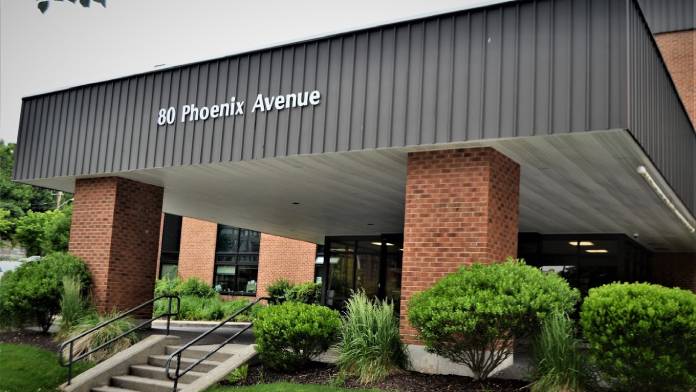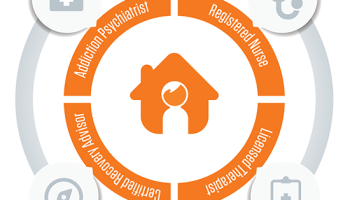StayWell Health Center

About StayWell Health Center
StayWell Health Center is a premier integrated healthcare and social service provider serving individuals and families in Waterbury, Connecticut. Services encompass primary medical care, dental treatment and behavioral health support for adults and teens. They offer evidence-based substance care including medication assisted treatment (MAT) for opioid use disorders. They also manage co-occurring mental health conditions like depression and anxiety that often go hand-in-hand with substance use.
Their integrated model lets you access specialty care like acupuncture, nutrition education and smoking cessation services. They even offer HIV/infectious disease screening and community programs to break barriers to healthcare access. They accept Medicaid, Medicare and several commercial insurance options.
Uninsured and underinsured clients benefit from an income-based sliding fee. It’s especially great that they offer services in English and Spanish to make support accessible to those from diverse linguistic backgrounds.
StayWell Health Center operates six clinics across Waterbury. This facility is situated in the Downtown Waterbury Historic District near Mattatuck Museum and Waterbury Green and west of Brass Mill Center. You can access the bulk of healthcare services provided by StayWell in this location.
Integrated Care for Holistic Recovery
StayWell offers treatment planning and MAT for opioid use disorder via a specialized program called OASIS. This program integrates Suboxone with group and individual therapy alongside case management delivered in person or via telehealth. Case managers coordinate care with community resources like housing, employment support and transportation. You may be prescribed Suboxone same-day if clinically appropriate. You’ll have a peer recovery coach to support and guide you through recovery.
StayWell also offers smoking cessation MAT and counseling for current patients who want to quit smoking. This may also include nutrition counseling and acupuncture. Aftercare support is provided to ensure you stay on track and continue your progress as you move forward.
| Levels of Care | Detox Service Setting | Programs | Payment Options |
|---|---|---|---|
|
Inpatient and residential programs provide round-the-clock medical and emotional support as you live at the treatment facility. This level of care may be recommended if you have severe addictions or mental health conditions since it removes outside distractions and allows you to focus solely on therapy. |
In outpatient therapy, you’ll attend therapy sessions several times each week while living at home. This is ideal if you have a strong support system and a lower risk of relapse. Outpatient treatment offers flexibility to maintain work, school or family obligations. |
||
|
Inpatient detox occurs in a dedicated treatment facility. You’ll live there around the clock and receive intensive medical support and supervision to help manage your withdrawal symptoms. It is suitable for individuals with moderate to severe addictions as it ensures a stable detox environment. |
Outpatient detox gives you access to medically supervised withdrawal services while still allowing you to live at home. You’ll attend a clinic for treatment and monitoring. This flexible option is suitable for those with mild to moderate withdrawal symptoms who have strong support systems. |
||
|
Alcohol detox programs offer medical support to help individuals withdraw safely from alcohol. Your care team may use medications to ease your symptoms and provide medical monitoring to address complications. |
Drug detox programs support individuals who are withdrawing from addictive substances like cocaine and heroin. Medical support helps you manage symptoms in a controlled and safe environment so you can achieve initial sobriety. |
||
|
Private Insurance
|
Self Pay
|
Levels of Care
Inpatient and residential programs provide round-the-clock medical and emotional support as you live at the treatment facility. This level of care may be recommended if you have severe addictions or mental health conditions since it removes outside distractions and allows you to focus solely on therapy.
In outpatient therapy, you’ll attend therapy sessions several times each week while living at home. This is ideal if you have a strong support system and a lower risk of relapse. Outpatient treatment offers flexibility to maintain work, school or family obligations.
Detox Service Setting
Inpatient detox occurs in a dedicated treatment facility. You’ll live there around the clock and receive intensive medical support and supervision to help manage your withdrawal symptoms. It is suitable for individuals with moderate to severe addictions as it ensures a stable detox environment.
Outpatient detox gives you access to medically supervised withdrawal services while still allowing you to live at home. You’ll attend a clinic for treatment and monitoring. This flexible option is suitable for those with mild to moderate withdrawal symptoms who have strong support systems.
Programs
Alcohol detox programs offer medical support to help individuals withdraw safely from alcohol. Your care team may use medications to ease your symptoms and provide medical monitoring to address complications.
Drug detox programs support individuals who are withdrawing from addictive substances like cocaine and heroin. Medical support helps you manage symptoms in a controlled and safe environment so you can achieve initial sobriety.
Contact

Chika Uchendu is a multi-niche and seasoned SEO writer with expertise in personal finance, technology and health. He’s had over 10 years of experience creating impactful content that resonates with diverse audiences. His journalism and digital marketing background enables him to combine data-driven analysis with engaging storytelling. This helps drive engagement and grants target audiences access to valuable information.
Chika has worked for Benzinga, Motley Fool, Webopedia and many other popular online media outlets on a freelance and contractual basis. He is using his voice to drive awareness and meaningful change among people dealing with the pandemic of substance use disorder. Chika is an ambivert who enjoys sports, hiking, reading and video gaming.

Peter W.Y. Lee is a historian with a focus in American Cold War culture. He has examined how popular culture has served as a coping mechanism for the challenges and changes impacting American society throughout the twentieth century.




